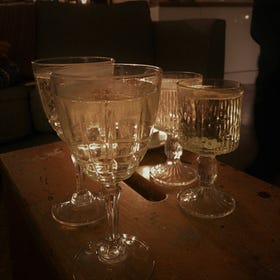Hi friends,
This time last year, I published a post that would free-pour its way from my laptop in Glasgow onto screens across the globe.
My spouse is sober... I'm not
·
“There is so much here for smart, creative women from this smart, creative woman, plus I have only just discovered Lindsay reading extracts from her powerful memoir – I am already hooked (and now a complete fan of her work).”
I wrote that I was still drinking long after my spouse’s relationship with booze had come to an end. I explored how his sobriety had changed our relationship and forced me to reckon with the realisation that — the daug…





